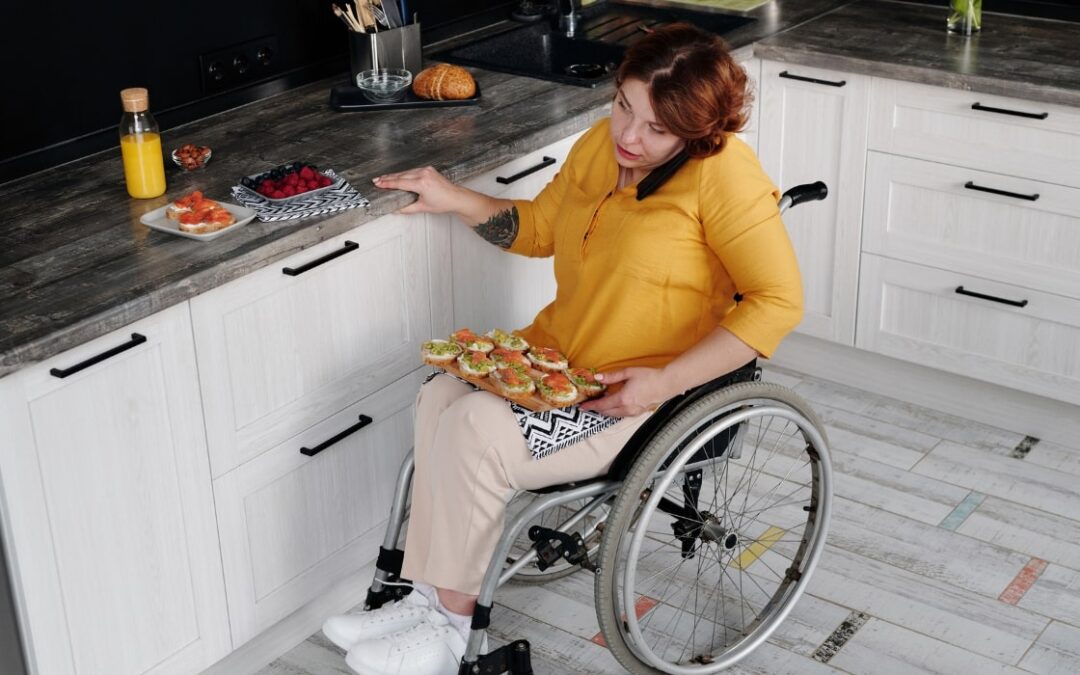Your home should be a place of comfort, safety, and independence, especially for those living with mobility limitations, chronic illness, or recovering from injury. But when stairs become obstacles, bathrooms pose slipping risks, or daily tasks grow challenging, even the coziest space can feel overwhelming. While these are hazards for older individuals, they can affect everyone: children with special needs, adults with disabilities, and those of any age who are recovering from injuries, surgeries, or illnesses.
At Reliant Home Care Services, we understand how important it is for your loved one to remain at home while staying safe and independent. One of the most powerful ways to make that possible is by combining home adaptations with compassionate in-home caregiver support.
Why Home Accessibility Matters
Home environments that aren’t adapted to a person’s physical needs can create daily barriers and even serious health risks. According to the CDC, more than one in four older adults falls each year, and many of those falls happen right at home due to environmental hazards like loose rugs, poor lighting, or lack of grab bars.
When the home is adapted correctly and a trained caregiver is available to assist, those risks can be significantly reduced. A more accessible home not only helps prevent injuries but also restores a sense of control and dignity to your loved one’s everyday life.
How In-Home Caregivers Help with Adapted Living Spaces
In-home caregivers do more than assist with meals and hygiene; they play a key role in helping your loved one navigate their space safely and comfortably. Here’s how:
1. Safe Movement and Mobility Support
Caregivers are trained to assist with walking, transferring from bed to chair, and using mobility aids like walkers or wheelchairs. But beyond that, they help ensure the living space itself supports safe movement by doing the following:
- Keeping pathways clear
- Identifying tripping hazards
- Assisting with stair navigation
- Monitoring for fatigue or balance issues
They also help your loved one build confidence in moving around the home, especially after surgery or a major health event.
2. Helping Use Adaptive Equipment Properly
Whether your loved one has a hospital bed, a shower chair, or a lift device, it takes time and skill to use this equipment effectively. Caregivers are trained to do the following:
- Safely assist with the use of adaptive tools
- Monitor equipment for maintenance or adjustments
- Provide reminders and guidance for consistent use
- Reduce the fear or discomfort that often comes with new medical devices
From raised toilet seats to grab bars and transfer boards, the right tools, when used the right way, can make a big difference.
3. Personalized Support Based on the Home Layout
No two homes are alike. What works in one kitchen or bathroom may not work in another. A caregiver who becomes familiar with your loved one’s unique space can help:
- Rearrange furniture for easier access
- Suggest small modifications (e.g., motion lights or non-slip mats)
- Work alongside occupational therapists to implement recommendations
- Ensure that comfort items like chairs, tables, and tools are within reach
Having someone there who understands both the individual and the home environment creates a safer and more empowering experience.
4. Encouraging Daily Independence
While caregivers offer assistance, they also promote independence by encouraging your loved one to do what they can within the boundaries of safety. That might include any or all of the following:
- Supporting dressing or grooming while allowing self-direction
- Setting up meal-prep stations so individuals can help cook
- Assisting with small tasks around the home to foster engagement
Every bit of independence matters, and the right caregiver knows how to strike the balance between help and empowerment.
Creating a Comfortable, Confident Life at Home
It’s not just about safety, either: it’s about dignity. When your loved one feels comfortable and capable in their own home, they enjoy greater peace of mind, better mental health, and more control over their daily life. That sense of agency is essential, especially for seniors or individuals managing chronic conditions or recovering from injury.
At Reliant Home Care Services, we believe every person deserves to feel safe and supported in their space. That’s why our caregivers are trained not only to provide care, but to also help your loved one thrive in the home they love.
Need help making your home safer and more accessible?
Let Reliant Home Care Services support your family. Whether your loved one needs short-term assistance after surgery or long-term support due to mobility challenges, our caregivers are ready to step in with compassion and expertise.
Call us today at 951-326-8090 or visit relianthomecareservices.com to schedule a free in-home consultation.




